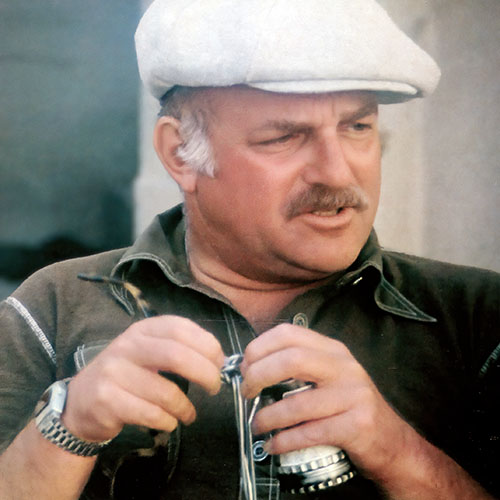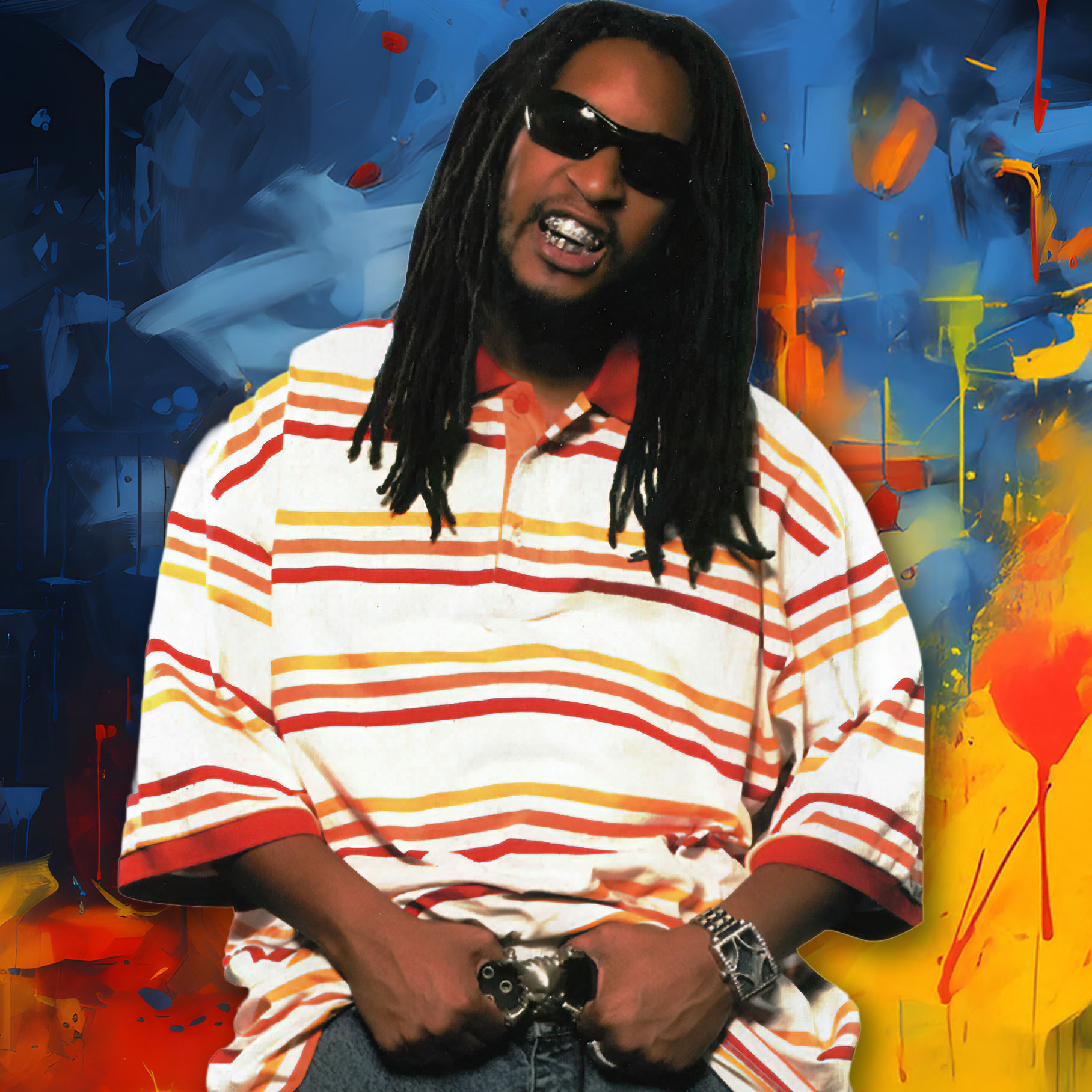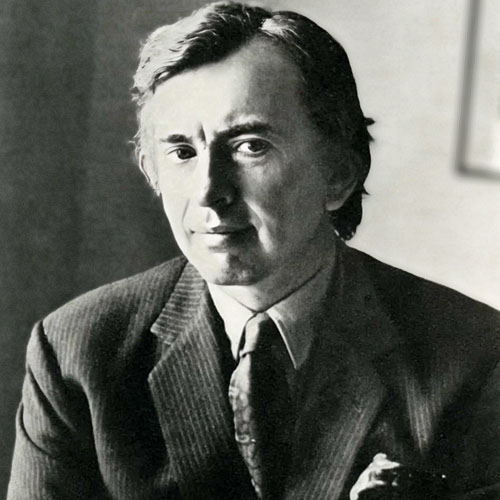Fast-talking, fast-thinking host Jimmy Pardo banters his way through his award-winning podcast Never Not Funny, now in its tenth season — and still living up to its name.
Total Riffage
You may or may not have noticed, but comedy podcasts have been popping up like toadstools during the past decade. In fact, you could say we’re living in a golden age of the medium. Dozens of performers are churning out podcasts on a weekly basis, from Marc Maron’s WTF to Scott Aukerman’s Comedy Bang Bang to Doug Benson’s Doug Loves Movies and more.
There’s no shortage of programming — or quality — in the burgeoning scene, but one of the first (and still one of the best) shows on the podcast landscape is Jimmy Pardo’s Never Not Funny. Now in its tenth season, the program consists of open-ended conversation between Pardo; his producer, Matt Belknap; and a different guest every week (the show posts on Mondays).
While that may not sound, on the face of it, like a formula for high hilarity, the show, which won the Rooftop Comedy Award in 2008 for Best Comedy Podcast, truly strives to match its title — and it mostly succeeds. That’s due in large part to the chemistry between the fast-talking, fast-thinking Pardo and the laid-back Belknap, the Administrator — formerly the Barber, formerly the Entrepreneur, formerly the Producer.
We sent our up-and-coming cub reporter, Kyle Dowling, to talk to Pardo and Belknap, to see if he could get the lowdown on Never Not Funny and how it got that way. They told him about the show’s origins, its future, and the singular pleasures of mining comedy gold from off-the-cuff riffing.
Thanks for your time today.
Matt Belknap: Sure, no problem.
Jimmy Pardo: Of course. You’re doing what I can only assume is a college term paper, so, you know …
[Laughs] I swear it’ll be in an actual publication. Can you tell me how the podcast got started?
JP: I had been doing a show at the Upright Citizens Brigade called Running Your Trap. At the time, Matt was a fan and he would come to my shows. He had started a podcast called AST Radio, where he’d get inside the minds of comedians and talk about the craft of comedy. He had me on as a guest. I didn’t know Matt that well, but when it was over, he said, “I think I’d have a lot more fun producing a Jimmy Pardo podcast than being the host of my own.” I knew a little bit about pod casts. I listened to Ricky Gervais’s. So we went back and forth and toyed with the idea, trying to figure out what the show would be.
Did you start with the current format?
MB: The original format was mostly interviews, but when we sat down with Jimmy, it became more of what you now know as Never Not Funny. His quick-witted conversational style just sort of took over, and that really became the template for NNF.
JP: I had always been told by fans that I should do a blog on my website, but every time I tried to write it sounded like an eighth-grade girl writing in her diary. Writing is not my forte; I’m an improvisational speaker. So when Matt said, “Let’s try this pod cast,” it sounded perfect. The first 10 to 15 minutes were going to be me talking about the previous two weeks of my life, and then I would bring a friend on for the last ten minutes to just riff. So when we sat down to do the very first one, I had [my friend, not the former third baseman] Mike Schmidt with me; Matt had set it up at my dining room table. Seconds in, I thought it didn’t feel right.
MB: We concluded the better approach would be to just do what he had done for that interview, but with a comedian friend of his sitting with us. It could be an audio version of a blog.
It’s become quite a fixture in the comedy world. Did you ever think it would be what it is today?
JP: In no way, shape, or form. After doing 100 shows — basically two years of doing a podcast — we were still in a world where nobody knew what a pod cast was. I really felt like, Am I that guy who has a show on cable access at 2 A.M. and thinks he’s in show business? So I told Matt, “Podcasting’s not taking off, why don’t we try this pay format to see if people would subscribe to it?” I said if nobody comes along with this pay structure, then we’ll give it up. Again, this was pre-pod cast boom, so who knew what was coming around the corner?
So what made you stay?
JP: The money, I’m not going to lie. [Laughs] It really was. And truth be told, I did enjoy doing it. I just felt a little like the open-mike comic who had business cards, but luckily this cult following that we’d built up came. Here we are, four years later, and people still pay to listen to our show. I’m really pleased with the decision that we made, obviously.
Many of the guests you’ve had on NNF now have their own podcasts.
JP: It’s fascinating to me. Podcasting has become a little incestuous; we’re all drawing from the same talent pool.
MB: But even if the format is the same, they’re all different because of the personalities behind them. The format is just the vessel. It’s the personality that is contained within that vessel that matters, and I think ours is unique.
You’ve had a wide array of people on, from Conan O’Brien and Jon Hamm to lesser-known names like Ty Burrell and Craig Bierko. Do you find yourself approaching those episodes in the same fashion?
JP: Not so much with people like Jon Hamm, because I knew him a bit. But when we had Ty Burrell on, I had never met him before. With people like him, Craig Bierko, and Conan, I did have to come into it a little differently. I fight the word “interview” with our show because I don’t think it’s an interview; I think it’s a conversation. It’s just friends sitting around a diner like in Broadway Danny Rose, chit-chatting about our lives. So with those, I think you have to go into it like a first date. It’s not so much an interview as you getting to know the person.
MB: But I will admit that I was star-struck to be sitting next to Conan O’Brien. It’s a little intimidating.
Even with him, it never seemed like an interview.
JP: Hopefully. Very rarely will I brag, but I think that speaks to me making people comfortable and being able to talk to them in a conversational style, but still get information. I think it’s a skill that I have. Again, it’s like a first date. You’re getting to know them.
MB: I think some are more so than others, though —
JP: Boy, I’m thrilled by that first-date analogy. It’s really the best analogy I’ve come up with in 20 years. Kyle, if I may, that’s the title of this interview.
“[Before the podcast took off] I really felt like, am I that guy who has a show on cable access at 2 a.m. and thinks he’s in show business?”
Is there a particular guest who you love having on? Someone you know will deliver a show?
JP: Well, there are the go-to’s, like Pat Francis, Scott Aukerman, Paul F. Tompkins — the ones you know will sit down and be ready to go.
Is there a guest who you haven’t had on that you’d like to?
JP: I’d love to start getting some legends on: Richard Lewis, Joan Rivers, Paul Reiser, Robert Klein. Also, I would love to have Ricky [Gervais] on because he is such an inspiration to the podcasting world, in addition to being a brilliantly funny man who could sit there and riff with you.
MB: I’ve always fantasized about having Tina Fey on the show. She’s one of my heroes. And I feel deep down in my heart that someday, somehow, we’re going to get the real Paul Stanley [Kiss rhythm guitarist and lead vocalist]. I think that would be amazing.
Would you have Pat Francis there to do his impression?
MB: If you know Pat, you know his nature, but he is a legitimate fan of Paul Stanley. He’s probably read more interviews with him than anyone. I think he would behave himself for the most part. He might even be starstruck.
Do you prepare conversation topics for the show?
MB: We like to have everything be in the moment. Jimmy thrives on the spontaneity of the format.
JP: The only things that come close are the Pat Francis eBay letters at the live shows. Other than that, I drive to the podcast thinking, Did anything happen that could be something to jump off of? Then, before you know it, the mikes are on and we’re talking about clouds for 45 minutes.
Jimmy, how has your off-the-cuff style helped you over the years?
JP: It’s given me a career. Early on, I’d write jokes, go to the open mikes, and when the jokes didn’t work I’d [Johnny] Carson it up and comment on how bad the jokes went, then comment on me commenting, and before you knew it I was deconstructing comedy, even though I didn’t know what that meant at the time. Eventually, Paul Gilmartin said it in a way that I understood, and the very next week I started treating every show like an open mike. In 1993, I started abandoning [written] material. At the time, there were four bookers in this country who consistently gave me work. They would say, “You’re onto something original. I’m going to bring you back every four months.” I’m very grateful.
You guys do a charity event called Pardcast-a-thon. Could you explain it for our readers?
MB: Pardcast-a-thon is a charity event that we do every year for Smile Train [SmileTrain.org]. They go to Third World countries and help kids with cleft palates.
JP: It’s a 12-hour marathon of NNF We have a different guest on every half hour, somebody from comedy or music.
Comedians are very open about insecurities. Do you think listeners struggling with their own issues find solace in podcasts, to understand they’re not the only ones who are self-doubting or alone?
JP: Absolutely. I think to be that open about insecurities and stuff, it lets people who are not comfortable talking about it with their friends, at risk of being made fun of — which is why they’re insecure to begin with — it’s as you said: Oh, good, I’m not alone.
What’s been the key to NNPs longevity?
MB: We built up a really devoted fan base in the beginning. They hear the details of our lives, and I think they’ve built a relationship with us that can’t be replaced by another show. A lot of people have that first-love syndrome with NNF.
How much longer will Jimmy Pardo keep it going?
MB: I think every year we have a conversation about what we can do. We don’t want to change it [drastically], but we want it to evolve in its own organic way.
JP: I have no interest in stopping. It really is fulfilling, and it’s something I look forward to every Monday. We flop around until we find the funny, and the flopping around is just as entertaining as the funny.
What are your favorite elements of doing the show?
JP: The creative outlet. I love going somewhere once a week, riffing and having fun with friends, and this cultlike fan base — and I mean that positively — that we are making a connection with. It’s the freedom to be creative and being able to reach people. It sounds hokey, but it’s the truth.
MB: I love when something indelible comes out of an organic moment. I think the most recent example is the [bit] “Stallone in a Bottle.” It really was just Jimmy accidentally talking with the bottle next to his mouth and doing a weird voice. What I like about that, and NNF in general, is that it has the capacity to generate something that never would have come about otherwise. The fact that we were talking into microphones at that moment and captured it, it felt sort of magical that it can occur and become a piece of comedy. It’s fun to remember that we created that as a group.
Amazingly enough — y’know, or not — Jimmy Pardo still hosts the Never Not Funny podcast and now has a website with a dizzying array of purchase options. If someone figures it out, they could Contact Us and clue in the room here. Do we get Paula Poundstone for $30, or do we get Paula Poundstone for $10 a month, even if we cancel after a month? … We’re going to call Director of Pet Projects (and former Pet herself), Sam Phillips. She speaks podcast. Maybe that will help.
























